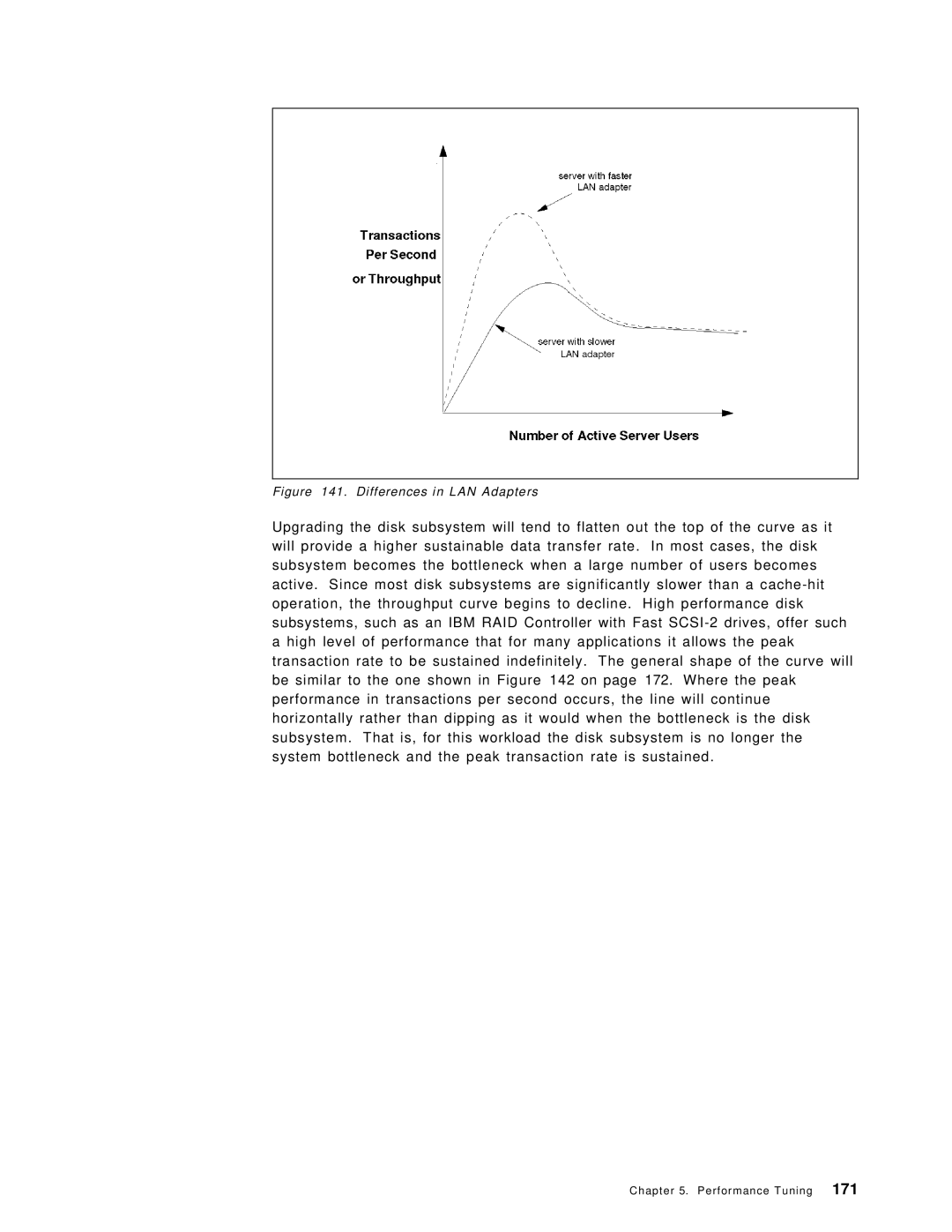
Figure 141. Differences in LAN Adapters
Upgrading the disk subsystem will tend to flatten out the top of the curve as it will provide a higher sustainable data transfer rate. In most cases, the disk subsystem becomes the bottleneck when a large number of users becomes active. Since most disk subsystems are significantly slower than a
Chapter 5. Performance Tuning 171
